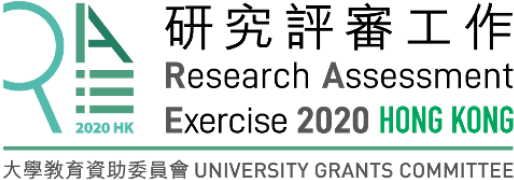Unit of Assessment:
Case Study
Informing the government and the business community about tax avoidance
1. Summary of the impact
Tax avoidance is an issue of global and local scope. The Chinese government has estimated that corporate tax avoidance has causes a RMB30 billion loss to its annual revenue. The main challenges we face today are the restructuring of government policy to close loopholes. Academic research has proved to be essential in advising and guiding this restructuring to be as efficient and effective as possible.
Research conducted at Lingnan University aims to do just this. Specifically, it sets out to support the government and the business community in three main ways: by informing stakeholders through accessible publications in the business press and practitioner journals, by participating in public policy research, and by engaging with industry via tax consultancy. Through these efforts, we provide information about corporate tax practices to inform tax enforcement policy. Accordingly, the stakeholders who benefit from our impact include corporations, CPA practitioners, governments and tax authorities.
2. Underpinning research
Due to its widespread practice and far-reaching implications for both government and business, tax avoidance is a headline issue that is gaining increasing attention, as witnessed by a call at a recent G20 summit to find ways to avoid base erosion and profit shifting by corporations.
Positioning its research to raise public awareness of tax avoidance in general, and avoidance through profit shifting in particular, the Lingnan University team has conducted empirical tax research that has implications for policy makers and business communities. Over the last 6 years the team members (K.H. Chan, Kenny Lin, Agnes Lo, William Shafer, and Richard Simmons) have published numerous articles in academic journals, authoritative business newspapers and tax periodicals that have drawn widespread attention and publicity to tax misreporting. The six studies listed in Section 3 examine the fundamental questions of whether corporations comply with the spirit of the tax law and what characteristics (country-specific and firm-specific) explain tax non- compliance in China. Institutional country characteristics include tax enforcement [R1], fiscal system [R2], and accounting standards [R4], while firm characteristics include ownership structure, corporate governance, and tax concessions [R3, R5, R6]. Results of the effect of institutions on tax practices suggest the following: ties between boards of directors and politicians weaken the effectiveness of government enforcement against tax-induced profit shifting [R1]; conflicts between central and local governments arising from tax sharing reform reduce the latter’s incentives to enforce collection of income taxes, on behalf of the former, from local government- owned firms [R2]; and moving away from tax-based accounting systems to IFRS creates difficulties for revenue agencies in enforcing tax compliance [R4].
The research also finds that firms have a tax-rate incentive to defer revenue from a high-rate period to a low-rate period [R3], to avoid using up tax losses too soon [R6], and to increase reported profits via transfer pricing when the tax rate decreases [R5]. Firm types and characteristics associated with a higher likelihood of engaging in tax avoidance activities include: 1) private firms and foreign investment enterprises, 2) subsidiary firms with their transfer pricing decisions dictated by the parent, 3) export-oriented and loss-making firms, 4) poorly governed firms, and 5) firms headquartered in regions with weak tax enforcement.
The conclusion that can be drawn from these studies is that as the effectiveness of tax systems to protect revenues is influenced by both formal (e.g., fiscal policy and tax system) and informal (e.g., political ties and social network) institutions, successful tax reform should not be limited to strengthening the tax administration within the revenue system alone, but should encompass a country’s political and business environments, including government-business relationships, the political economy of regulatory agencies, and the incentives and behavior of different actors outside the system. Through disseminating its findings to the public, the research helps minimize unintended consequences of public policy initiatives and reforms.
3. References to the research
[R1] Lin, Mills, Zhang, and Li. 2018. Do political connections weaken tax enforcement effectiveness? Contemporary Accounting Research 35(4): 1941-1972.
[R2] Tang, Mo, and Chan. 2017. Tax collector or tax avoider? An investigation of intergovernmental agency conflicts. The Accounting Review 92(2): 247-270.
[R3] Lin, Mills, and Zhang. 2014. Public versus private firm responses to the tax rate reduction in China. Journal of the American Taxation Association 36(1): 137-163.
[R4] Chan, Lin, and Mo. 2010. Will a departure from tax-based accounting encourage tax noncompliance? Archival evidence from a transition economy. Journal of Accounting and Economics 50: 58-73.
[R5] Lo, Wong, and Firth. 2010. Tax, financial reporting, and tunnelling incentives for income shifting: An empirical analysis of the transfer pricing behavior of Chinese-listed companies. Journal of the American Taxation Association 32(2): 1-26.
[R6] Chan and Mo. 2000. Tax holidays and tax noncompliance: An empirical study of corporate tax audits in China’s developing economy. The Accounting Review 75(4): 469-484.
According to Brigham Young University Accounting Research Rankings 2018 (www.byuaccounting.net), Lingnan University research is in top place in Hong Kong for contributing to tax research.
4. Details of the impact
The impact is in three major areas: communicating tax avoidance mechanisms to stakeholders, engaging with industry practices via the provision of training programs and consultancy services, and participating in practice research to inform tax policies.
Disseminating research findings through the media
Drawing upon the original research referenced in Section 3 above, the findings have been disseminated through multiple platforms that target a general and professional readership. Specifically, Kenny Lin’s articles in the Hong Kong Institute of Certified Public Accountants (HKICPA) A-Plus (May 2018 and March 2019) discuss the effectiveness of anti-tax avoidance measures in China. Shi Shanshan, in her article (in Chinese) that was published in its Theory & Research column by China Taxation News (中国稅务报 30 January 2019), commented on China’s future transfer pricing policy direction. Together with Richard Simmons, she discussed, amongst other issues, the ethical issues involved in enforcing tax legislation in China (CSJ: Journal of the Hong Kong Institute of Chartered Secretaries, June 2019). The research findings were also translated into layman’s terms and made accessible to the general public via social media, such as WeChat and Facebook.
These contributions have raised public awareness and added to media discourse of tax avoidance in China. For example, the tax partner of EY (Hong Kong) and tax senior manager of KPMG (Hong Kong) found the research evidence relevant to their training and workshops for young professionals [C1]. The Shenzhen Accounting Association published the full coverage of an interview with Kenny Lin about the practical implications of academic research in tax avoidance in its official WeChat account, that has attracted over one thousand viewers [C1]. The correspondent of Harbour Times who attended the Biennial Workshop hosted by the Hong Kong Economic Association cited Richard Simmons’ research contributions in the discussion of tax reform in Hong Kong [C2].
Engaging with industry via training workshops and consultancy work
The Accountancy Department organized a knowledge transfer forum entitled “Creating an impact: Lingnan transfer pricing forum” on 20th September 2019 that attracted over 75 practitioners, alumni, students and faculty members. In his presentation, Mr. Kenny Wei, transfer pricing partner of EY (Hong Kong), cited Lingnan University studies to support his observations about transfer pricing practices in China. Two CFOs from listed companies also shared their views on how academic tax research can be directly useful and effectively disseminated to policymakers and practitioners. In post-forum feedback (25 valid questionnaires), participants stated that the forum provided information that is very relevant to their practice and very useful. We also attracted about 500 viewers from various industries from the WIND live broadcasting of the forum. Comments we received include “It is very useful for my work as a practitioner working in a big four accounting firm in Hong Kong” and The knowledge from the forum is considerably beneficial to my career in financial industry” [C3].
Recognizing that research evidence from Lingnan University is relevant to their members, several professional bodies invited Agnes Lo to run workshops on Transfer Pricing Research and Tax Audits in China for their members, including the HKICPA (workshop delivered on 17th Dec. 2018), CPA Australia (on 8th May 2019), and the CIMA (on 16th May 2019). In total, more than 120 members from various professional bodies attended these workshops. The workshops were well received, as indicated by post-workshop feedback [C4].
Richard Simmons has been a regular speaker at the HKICPA Professional Ethics Workshop (International Tax) since 2012 [C5]. Each year, about 50 CPAs attend the workshop. According to the evaluation survey conducted in January 2019, 83% of the participants rated the content of the workshop “highly relevant” to their needs. One participant subsequently wrote to Richard Simmons: “I have included this ethics study into my daily business practice and corporate policy.”
Guangzhou Lvyuan Information Technology Company has engaged the expertise of the Department (notably Kenny Lin and Shanshan Shi) to provide consultancy services for a government-funded project that uses artificial intelligence to help local SMEs automate their financial and tax reporting [C6].
Shan Dong Guo Shang Investment Management Company Limited has regularly engaged the expertise of Han Peng to provide consultancy services for China tax law and tax avoidance issues since 2015 [C7].
Owing to their exerptise in tax and tax litigations, Kenny Lin and Shanshan Shi have been appointed by the Inland Revenue Department of the Hong Kong as panel members of the Board of Review, an independent statutory body constituted under the Inland Revenue Ordinance to hear and determine tax appeals in Hong Kong [C8].
Participating in public policy research and debates
Due to an increase in the visibility of the department’s research findings, the Accountancy team has been invited to participate in policy research and forums. For example, the Shenzhen Accounting Association appointed Kenny Lin as an Accounting Specialist to qualify for its research funding and projects [C9].
The Guangdong Zhihui Finance & Taxation Research Center, funded by the Guangdong Science and Technology Department, appointed Kenny Lin as a member of a Specialist Committee set up to carry out applied research into the Greater Bay Area economy, finance, and taxation [C10].
5. Sources to corroborate the impact
[C1] Emails from Mr. Kenny Wei, Ernst & Young Tax Services Limited, Mr. William Wong, KPMG Tax Services Limited about relevance of academic research findings to professional practices. Shenzhen Accounting Association. 企业避税和 转让 定价的学术研究对实践的启示 — 访香港岭南大学会计系林振聘教授. (officialWechat).
[C2] Lam, C. 2013. Taxing democracy. Harbour Times. 19 September 2013.
[C3] “Creating an impact: Lingnan transfer pricing forum”, 20 September 2019 (Pamphlet, press release and participants’ evaluation and feedback)
[C4] Lo, A., Invitation letters from the HKICPA, CPA Australia and CIMA, and workshop participants’ evaluation and post-workshop feedback for running professional workshops.
[C5] Simmons, R. HKICPA Professional Ethics Workshop, 12 January 2019. (Invitation letter and workshop participants’ evaluation)
[C6] Supplementary agreement with Guangzhou Lvyuan Information Technology Company (廣 州綠源資訊科技有限公司) for the provision of consultancy services.
[C7] Letter of certification and thanks from Shan Dong Guo Shang Investment Management Company Limited (山東國商投資管理有限公司) for the provision of consultancy services.
[C8] Appointment letters of Lin, K., and Shi, S. from the Board of Review, Inland Revenue Department.
[C9] Lin, K. Appointment as Accounting Specialist by the Shenzhen Accounting Association.
[C10] Lin, K. Appointment letter from Guangdong Zhihui Finance & Taxation Research Center.

